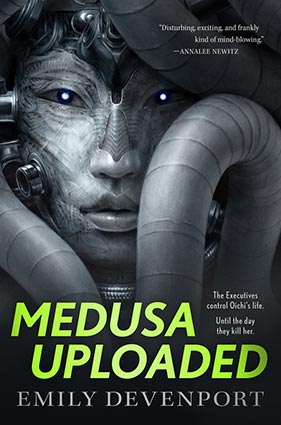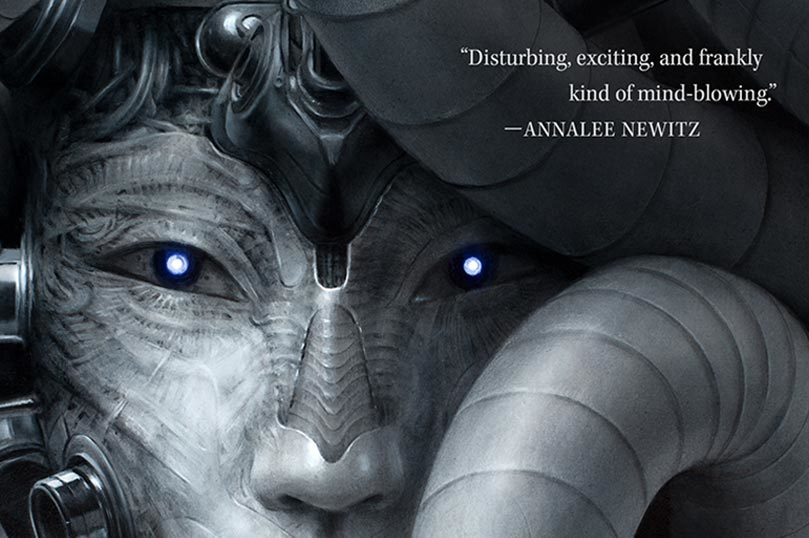opens in a new window Written by Emily Devenport
Written by Emily Devenport
The point of mystery fiction is to see that actions have consequences. The point of science fiction is to change your perspective. Yet, the two genres have a lot in common, and they can both be useful to storytellers trying to illuminate the human condition.
A good mystery writer is going to get you to understand that justice usually doesn’t prevail. There’s damage, and good people try to cope with it. Some of the bad people have good qualities (which is what makes them so dangerous), and some good people have faults (which is what makes them so interesting). The imbalance seeks to find a new equilibrium, for better or for worse.
Science fiction addresses that truth with some odd permutations. Technology, time/space travel, alien psychology that truly is alien, create new cultures, settings, and political systems. But the characters still try to solve problems, and that’s the human interface. We’re the hunter-gatherers of the galaxy. If we meet other hunter-gatherers, we may learn a lot from them. If we meet people who aren’t wired that way at all, we may learn more. And that’s where the conflict gets interesting, because even among different human cultures, people who appear to be friends may not be. People who appear to be enemies may be allies, or at least frenemies. And aliens may not even perceive time the same way we do. Perhaps in their view, what goes around doesn’t come around. It happens all at once.
I’d like to tell you I had all of that in mind when I wrote Medusa Uploaded. Instead, my character, Oichi, showed up in one of my dreams. She was in a tough spot, but she also had a lot of useful attributes—and a powerful friend: Medusa. I could see that revenge wasn’t their motivation, but I admit—it was mine. Like any god, I had selfish impulses when I set my avatars in motion. I wanted revenge on the people who oppressed them, because these folks represented the same people who oppress the people in the world where I live—their greed, their rigid thinking, and their willingness to toss people away as if they were trash.
In real life, people who battle that sort of injustice are political activists, or journalists, or doctors—the sort of people who fight fair. We all know how that tends to end up. Not that these folks don’t do lasting good—Dr. Martin Luther King Jr. changed the world. But they’re looking at the big picture; ordinary people tend to fall by the wayside. Sometimes you just want to see Spider-man sock Dr. Doom right in the kisser (in such a way that doesn’t get you sued for defamation of character). That’s why characters like Jeff Lindsay’s Dexter are so popular. He isn’t restrained by compassion. He only worries about getting caught, and because he’s killing bad guys, he reinforces our delusion that the ends justify the means.
Oichi isn’t as pitiless as Dexter, but she’s close enough for government work. Her talents and her circumstances make her the perfect instrument of my revenge—possibly of yours, too.
So let’s enjoy some nice, cold sci-fi revenge. We’ve earned it.
Order Your Copy
opens in a new window opens in a new window
opens in a new window opens in a new window
opens in a new window opens in a new window
opens in a new window opens in a new window
opens in a new window
Follow Emily Devenport on opens in a new windowTwitter and on her opens in a new windowwebsite.







Nobody can beat Emily Devenport on the page.
Just want to say that I just finished reading this book this morning and it’s amazing. It has the crunchy sci-fi worldbuilding of Yoon Ha Lee’s Machineries of Empire series with a focus on its characters emotional and social lives and connections that reminded me of Becky Chambers’ A Closed and Common Orbit.
It was so good I didn’t want it to end!